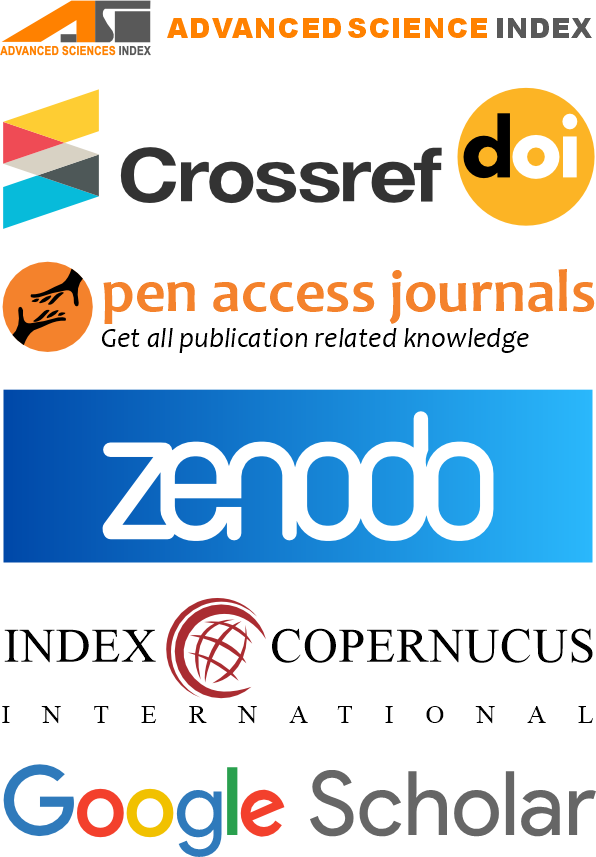The Impact of Emotional Intelligence on Transformational Leadership Among Project Managers
DOI:
https://doi.org/10.55737/rl.2025.44123Keywords:
Emotional Intelligence, Transformational Leadership, Project ManagersAbstract
The aim of the study is to fill the gap in the previous literature by investigating the impact of emotional intelligence among project managers employed in Pakistan and the United Arab Emirates. The study adopted a cross-sectional correlational study design and a purposive sampling technique to collect data from project managers with Pakistani ethnicity, aged at least 23 years, with a minimum of one year of experience as a project manager, and who possessed at least a bachelor’s degree. The study comprised two questionnaires, i.e., the Brief Emotional Intelligence Scale and 20 items from the Multifactor Leadership Questionnaire (to measure transformational leadership only). It was hypothesised that emotional intelligence is likely to significantly and positively correlate with transformational leadership among project managers. It was also hypothesised that emotional intelligence impact on transformational leadership would be significant and positive. The data is analysed using IBM SPSS version 26. The Pearson product-moment correlation depicted a significant relationship between emotional intelligence and transformational leadership among project managers. Furthermore, regression analysis depicted that emotional intelligence significantly predicted transformational leadership. The study ended with comprehensive implications for project managers, emphasizing the importance of emotional intelligence in enhancing transformational leadership.
References
Ashouri, A., Jamil, L., Alimoradi, H., & Aghedi, M. (2020). Psychometric properties of Farsi version of trait emotional intelligence questionnaire- Adolescent short form. Iranian Journal of Psychiatry and Behavioral Sciences, 13(4). https://doi.org/10.5812/ijpbs.94601
Barbuto, J. E., & Burbach, M. E. (2006). The emotional intelligence of transformational leaders: A Field study of elected officials. The Journal of Social Psychology, 146(1), 51-64. https://doi.org/10.3200/socp.146.1.51-64
Bass, B. (2015). Transformational leadership theory. In Organizational Behavior 1 (pp. 361-385). Routledge.
Bass, B. M., & Avolio, B. J. (1995). Multifactor Leadership Questionnaire (MLQ) [Database record]. APA PsycTests. https://doi.org/10.1037/t03624-000
Bredillet, C., Tywoniak, S., & Dwivedula, R. (2015). What is a good project manager? An Aristotelian perspective. International Journal of Project Management, 33(2), 254-266. https://doi.org/10.1016/j.ijproman.2014.04.001
Cheng, M., Dainty, A. R., & Moore, D. R. (2005). What makes a good project manager? Human Resource Management Journal, 15(1), 25-37. https://doi.org/10.1111/j.1748-8583.2005.tb00138.x
Davies, K. A., Lane, A. M., Devonport, T. J., & Scott, J. A. (2010). Validity and reliability of a brief emotional intelligence scale (BEIS-10). Journal of Individual Differences, 31(4), 198-208. https://doi.org/10.1027/1614-0001/a000028
Deng, C., Gulseren, D., Isola, C., Grocutt, K., & Turner, N. (2022). Transformational leadership effectiveness: An evidence-based primer. Human Resource Development International, 26(5), 627-641. https://doi.org/10.1080/13678868.2022.2135938
Durosini, I., Triberti, S., Ongaro, G., & Pravettoni, G. (2020). Validation of the Italian version of the brief emotional intelligence scale (BEIS-10). Psychological Reports, 124(5), 2356-2376. https://doi.org/10.1177/0033294120959776
Edkins, A., Geraldi, J., Morris, P., & Smith, A. (2013). Exploring the front-end of project management. Engineering Project Organization Journal, 3(2), 71-85. https://doi.org/10.1080/21573727.2013.775942
Fisher, E. (2011). What practitioners consider to be the skills and behaviours of an effective people project manager. International Journal of Project Management, 29(8), 994-1002. https://doi.org/10.1016/j.ijproman.2010.09.002
Görgens-Ekermans, G., & Roux, C. (2021). Revisiting the emotional intelligence and transformational leadership debate: (How) does emotional intelligence matter to effective leadership? SA Journal of Human Resource Management, 19. https://doi.org/10.4102/sajhrm.v19i0.1279
Kumar, S. (2014). Establishing linkages between emotional intelligence and transformational leadership. Industrial Psychiatry Journal, 23(1), 1. https://doi.org/10.4103/0972-6748.144934
Li, Z., Li, X., & Chen, J. (2025). Emotional intelligence of educators: A bibliometric review, 1998–2024. Social Psychology of Education, 28(1). https://doi.org/10.1007/s11218-025-10048-2
Lientz, B., & Rea, K. (2007). Project management for the 21st century. Routledge.
Lindebaum, D., & Cartwright, S. (2010). A critical examination of the relationship between emotional intelligence and transformational leadership. Journal of Management Studies, 47(7), 1317-1342. https://doi.org/10.1111/j.1467-6486.2010.00933.x
Mora, M. S., Álvarez, B. L., Cabodevilla, A. A., & Vázquez-Calatayud, M. (2024). Emotional intelligence of nurses in intensive care units: A systematic review. Intensive and Critical Care Nursing, 84, 103724. https://doi.org/10.1016/j.iccn.2024.103724
Purwanto, A. (2022). The role of transformational leadership and organizational citizenship behavior on SMEs employee performance. Journal of Industrial Engineering & Management Research, 3(5), 39-45. https://doi.org/10.7777/jiemar.v3i5.318
Qalati, S. A., Zafar, Z., Fan, M., Limón, M. L. S., & Khaskheli, M. B. (2022). Employee performance under transformational leadership and organizational citizenship behavior: A mediated model. Heliyon, 8(11). https://doi.org/10.1016/j.heliyon.2022.e11374
Rizzo, M., Testa, S., Gattino, S., & Miglietta, A. (2019). Flexibility in existential beliefs and worldview: Testing measurement invariance and factorial structure of the existential quest scale in an Italian sample of adults. Frontiers in Psychology, 10. https://doi.org/10.3389/fpsyg.2019.02134
Schwalbe, K. (2009). Introduction to project management. Boston: Course Technology Cengage Learning.
Solih, M., Ahmed, N., Moosa, V., Shareefa, M., & Wider, W. (2024). Research trends and patterns on emotional intelligence in education: A bibliometric and knowledge mapping during 2012–2021. Open Education Studies, 6(1). https://doi.org/10.1515/edu-2024-0025
Tessema, D. B. (2010). The relationship between emotional intelligence and transformational leadership in project management: A quantitative study. Walden University.
Wang, Y., & Huang, T. (2009). The relationship of transformational leadership with group cohesiveness and emotional intelligence. Social Behavior and Personality: an international journal, 37(3), 379-392. https://doi.org/10.2224/sbp.2009.37.3.379






